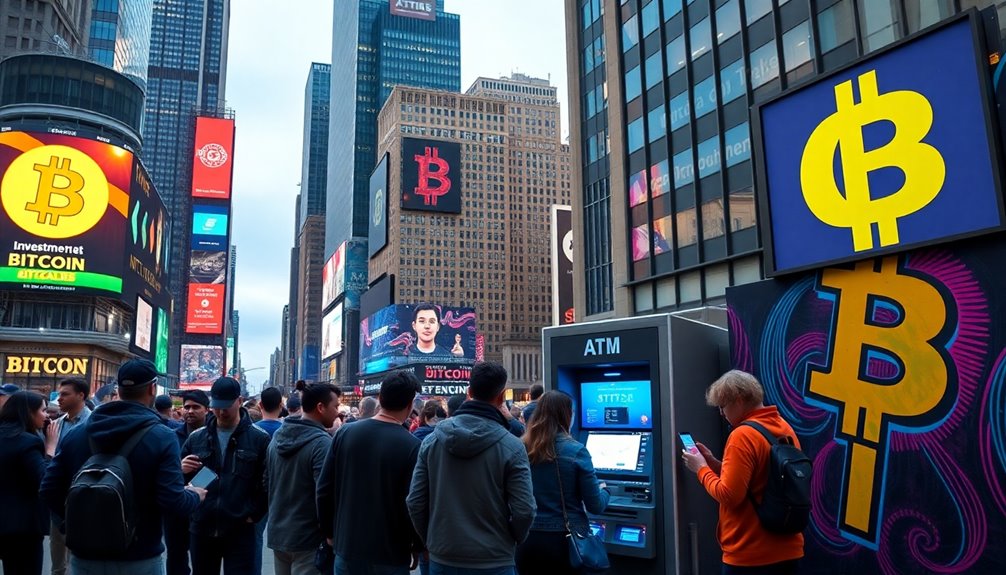You might have noticed how Bitcoin adoption is gaining traction across various U.S. states. It's not just a trend; there's a mix of regulatory changes, tech advancements, and evolving consumer mindsets driving this shift. With projections showing that 70% of American adults could own cryptocurrency by 2025, it raises questions about what's fueling this momentum. What factors are truly influencing this rapid acceptance, and how might it reshape our financial landscape?

As Bitcoin continues to gain traction in the U.S., it's clear that a significant shift is underway in how Americans perceive and use cryptocurrency. By 2025, around 70% of American adults are expected to own some form of cryptocurrency, a remarkable increase that signals growing acceptance. 70% of American adults now owning cryptocurrency highlights this transformation.
A significant shift is underway as Bitcoin gains traction, with 70% of American adults expected to own cryptocurrency by 2025.
You might notice that younger generations are leading the charge, with Gen Z boasting a 42.3% ownership rate, followed closely by Millennials at 37.4%. This generational trend illustrates how digital currency is becoming integral to financial identity for many young Americans.
The surge in businesses accepting Bitcoin—now nearly 24,000—reflects a broader trend of increased acceptance. You can easily spot this shift in your community, as more shops and online retailers jump on board.
This growing network of acceptance, coupled with favorable regulatory changes, is creating an environment ripe for adoption. A significant 41.4% of investors believe that pro-crypto regulations will positively impact the market, indicating a strong desire for legal clarity that can further legitimize Bitcoin in the eyes of the public.
Various factors are driving this adoption forward. With 72.5% of investors convinced that rising Bitcoin prices will fuel growth, the market's bullish sentiment is palpable.
Institutional investment also plays a crucial role, as major corporations and even sovereign nations are starting to include Bitcoin in their portfolios. You might find it reassuring that Bitcoin is increasingly viewed as a store of value, similar to gold, which attracts both developed and developing economies.
Technological advancements have paved the way for easier access and usage of Bitcoin. The widespread availability of the internet and smartphones means you can engage with Bitcoin transactions with just a few taps on your device.
New custodial services simplify entry into the crypto space, making it easier for newcomers to get started. Mobile digital wallets are a game-changer, allowing you to manage your Bitcoin seamlessly.
Lastly, the global landscape influences how Bitcoin is viewed and adopted. Countries like Japan and Germany exhibit clear regulatory support, enhancing legitimacy and trust in the cryptocurrency.
Meanwhile, proposals like the BITCOIN Act hint at a future where the U.S. might formally recognize Bitcoin as a strategic asset. As these dynamics unfold, you're likely to witness a transformative period for Bitcoin in the U.S., reshaping the financial landscape for years to come.









